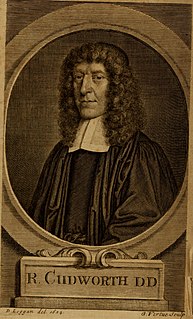A Quote by Leo Tolstoy
True art and true science possess two unmistakable marks: the first, an inward mark, which is this, that the servitor of art and science will fulfil his vocation, not for profit but with self- sacrifice; and the second, an external sign, his productions will be intelligible to all the people whose welfare he has in view.
Related Quotes
How often people speak of art and science as though they were two entirely different things, with no interconnection. That is all wrong. The true artist is quite rational as well as imaginative and knows what he is doing; if he does not, his art suffers. The true scientist is quite imaginative as well as rational, and sometimes leaps to solutions where reason can follow only slowly; if he does not, his science suffers.
The fairest thing we can experience is the mysterious. It is the fundamental emotion that stands at the cradle of true art and true science. It is the source of all true art and science. He who knows it not and can no longer wonder, no longer feel amazement, is as good as dead, a snuffed-out candle.
There are two kinds of truth; the truth that lights the way and the truth that warms the heart. The first of these is science, and the second is art. Without art science would be as useless as a pair of high forceps in the hands of a plumber. Without science art would become a crude mess of folklore and emotional quackery.
The well-educated young woman of 1950 will blend art and sciences in a way we do not dream of; the science will steady the art andthe art will give charm to the science. This young woman will marry--yes, indeed, but she will take her pick of men, who will by that time have begun to realize what sort of men it behooves them to be.
The true man of science will know nature better by his finer organization; he will smell, taste, see, hear, feel, better than other men. His will be a deeper and finer experience. We do not learn by inference and deduction and the application of mathematics to philosophy, but by direct intercourse and sympathy. It is with science as with ethics,--we cannot know truth by contrivance and method; the Baconian is as false as any other, and with all the helps of machinery and the arts, the most scientific will still be the healthiest and friendliest man, and possess a more perfect Indian wisdom.
Art and science coincide insofar as both aim to improve the lives of men and women. The latter normally concerns itself with profit, the former with pleasure. In the coming age, art will fashion our entertainment out of new means of productivity in ways that will simultaneously enhance our profit and maximize our pleasure.
The more the Jew is a Jew, the more universalist will his views and aspirations be, the less aloof will he be from anything that is noble and good, true and upright, in art or science, in culture or education; the more joyfully will he applaud whenever he sees truth and justice and peace and the ennoblement of man prevail and become dominant in human society.
If, in the course of a thousand or two thousand years, science arrives at the necessity of renewing its points of view, that will not mean that science is a liar. Science cannot lie, for it's always striving, according to the momentary state of knowledge, to deduce what is true. When it makes a mistake, it does so in good faith. It's Christianity that's the liar. It's in perpetual conflict with itself.
... woman's cause is the cause of the weak; and when all the weak shall have received their due consideration, then woman will have her "rights," and the Indian will have his rights, and the Negro will have his rights, and all the strong will have learned at last to deal justly, to love mercy, and to walk humbly; and our fair land will have been taught the secret of universal courtesy which is after all nothing but the art, the science, and the religion of regarding one's neighbor as one's self, and to do for him as we would, were conditions swapped, that he do for us.
The blessed Paul argues that we are saved by faith, which he declares to be not from us but a gift from God. Thus there cannot possibly be true salvation where there is no true faith, and, since this faith is divinely enabled, it is without doubt bestowed by his free generosity. Where there is true belief through true faith, true salvation certainly accompanies it. Anyone who departs from true faith will not possess the grace of true salvation.





































